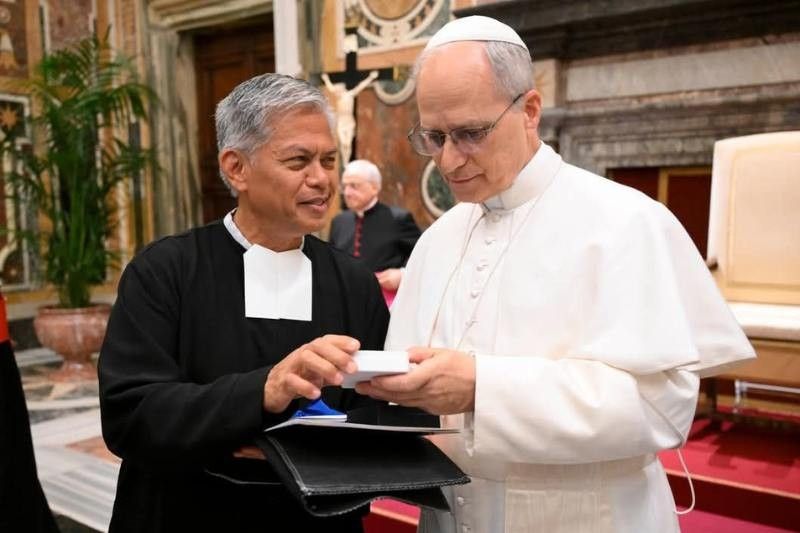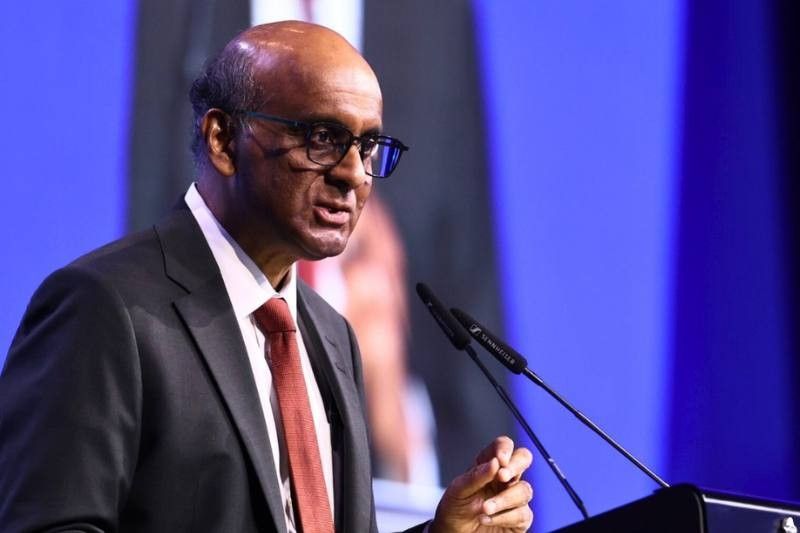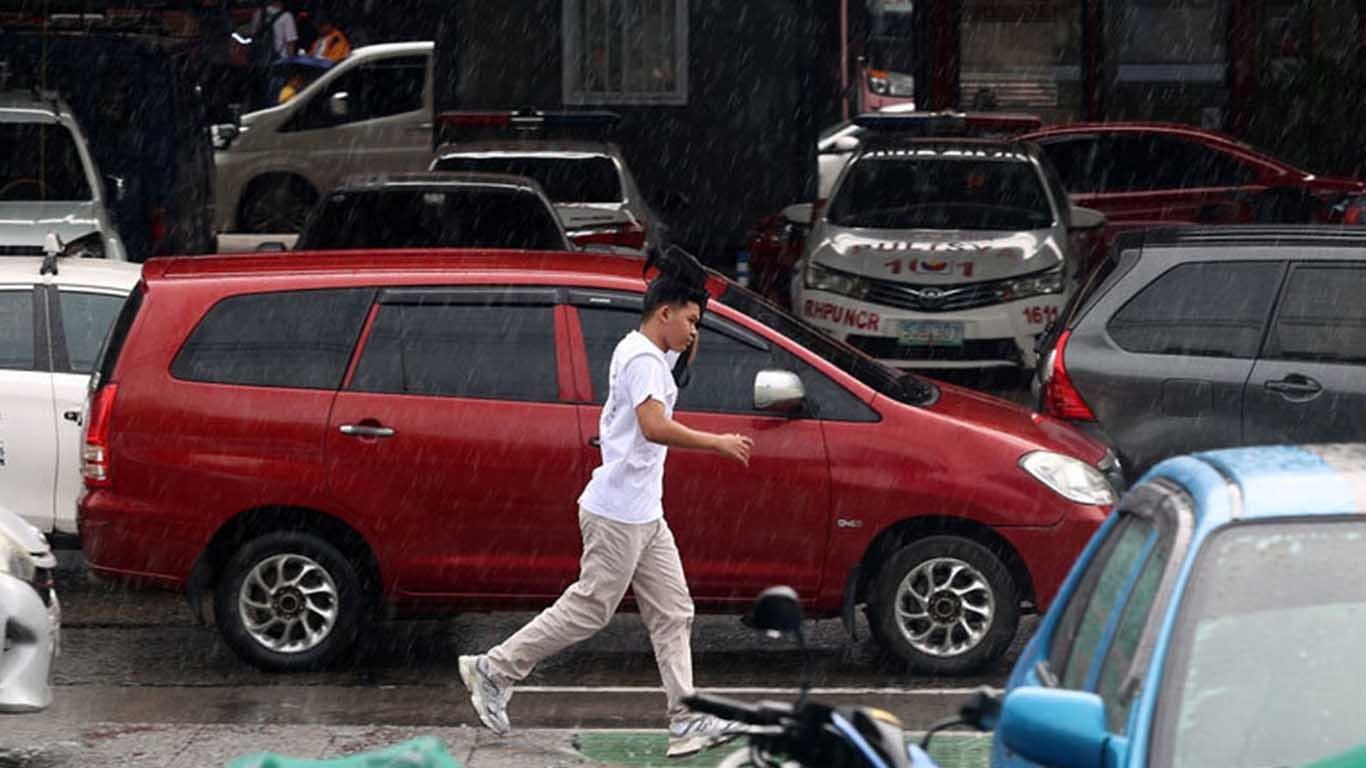
Upgrade to High-Speed Internet for only ₱1499/month!
Enjoy up to 100 Mbps fiber broadband, perfect for browsing, streaming, and gaming.
Visit Suniway.ph to learn
MANILA, Philippines — The Philippine government is open to reducing the excise tax on fuel, with economists maintaining it is more prudent than providing subsidies to vulnerable sectors.
“A dramatic increase in oil prices will dramatically increase oil revenue for the government. We may reduce excise tax on fuel to ensure inflation is tempered,” Finance Secretary Ralph Recto told The STAR.
“We are studying trigger points. For now, oil prices have dropped,” he added.
Staggered fuel price hikes of up to P5 are set this week as Middle East tensions worsened after the United States bombed three Iranian nuclear sites.
De La Salle University economist Maria Ella Oplas said reducing the excise tax on fuel is a short-term option that the government should do.
“It is time for the government to implement prudent fiscal policy,” she told The STAR.
Ateneo de Manila University economist Leonardo Lanzona also argued that lowering the excise tax is more viable.
“The decline in rates will be offset by the increase in oil prices, hence keeping total tax revenues constant. The government should not benefit from this crisis while the rest of us suffer,” he said.
Excise tax for petroleum products ranges from P3 per liter to as much as P10, according to the Tax Reform for Acceleration and Inclusion Law.
Headline inflation continued its downtrend in May, easing to an almost six-year low of 1.3 percent.
For the five-month period, inflation settled at 1.9 percent, below the government’s two to four percent target.
But as an oil-importing country, the Philippines is largely vulnerable to any disruption in the Middle East, which produces roughly a third of the global oil supply.
The Strait of Hormuz, a major trade route for global oil shipments to Asia, is feared to be blocked as tensions escalate, which would only cause prices to skyrocket further.
US President Donald Trump earlier said Iran and Israel agreed to a ceasefire, but Iran allegedly violated the deal after reportedly firing missiles.
Following the reported ceasefire, oil companies should put on hold the price hike, Sen. Imee Marcos said yesterday.
Fuel subsidy
The Department of Transportation (DOTr) is close to tapping P2.5 billion in its budget for fuel subsidies to public utility vehicle drivers and operators, including unconsolidated PUVs.
The agency is working with the Land Transportation Franchising and Regulatory Board, Department of the Interior and Local Government, Department of Information and Communications Technology and Landbank of the Philippines to validate beneficiaries and ensure swift distribution of subsidies.
Under the 2025 national budget, the DOTr has a special provision of P2.5 billion for fuel subsidies to PUVs when fuel prices are rising extraordinarily.
To activate this, the DOTr must issue distribution guidelines.
The agency must secure certification from the Department of Energy that Dubai crude has averaged above $80 per barrel for at least a month.
The DOE said Dubai crude has averaged $75.16 a barrel as of Monday.
No oil supply threat
There is no current threat to the country’s fuel supply, a top energy official yesterday told “Storycon” on One News.
“The actual effect of US airstrikes over the weekend will be reflected in price adjustments next week,” said Oil Industry Management Bureau director Rino Abad.
While the situation in the Persian Gulf remains volatile, Abad explained there is no disruption in oil exports from Iran, which ships out around 1.57 million barrels per day, or just about 1.5 percent of the global supply.
“That volume can easily be covered by the spare capacity of Saudi Arabia, Kuwait and the United Arab Emirates, which stands at 5.4 million barrels per day,” Abad said. “There is no actual supply disruption at this point.”
Abad defended the pricing system of oil companies, saying state intervention in daily adjustments is difficult under the Oil Deregulation Law.
“The only way to enforce inventory-based pricing would be for the government to temporarily take over fuel storage facilities, and that requires emergency powers from Congress and a presidential declaration,” Abad said.
The DOE is working with the Department of Foreign Affairs to explore diplomatic channels to secure supplies from countries outside the Middle East, such as Canada, Norway, Mexico and Brazil.
Oil trade, he noted, is largely done through mercantile exchanges and not through direct government agreements.
“As of now, there are no standby deals. Even the ASEAN Petroleum Security Agreement hasn’t been fully implemented,” he said.
Meanwhile, the Malabon city government earlier prepared 11 vehicles to assist commuters affected by yesterday’s “Bawas Pasada” protest by transport group. — Neil Jayson Servallos, Elijah Felice Rosales, Christine Boton, Marc Jayson Cayabyab, Mark Ernest Villeza

 12 hours ago
3
12 hours ago
3



